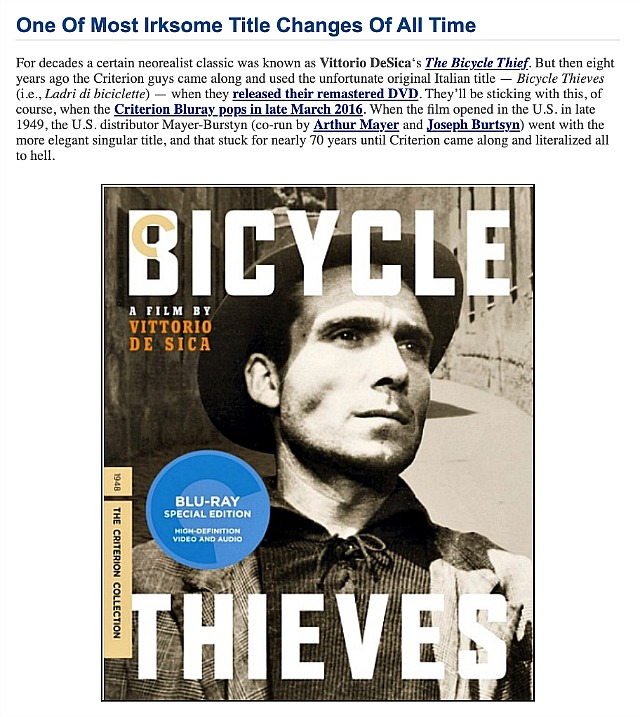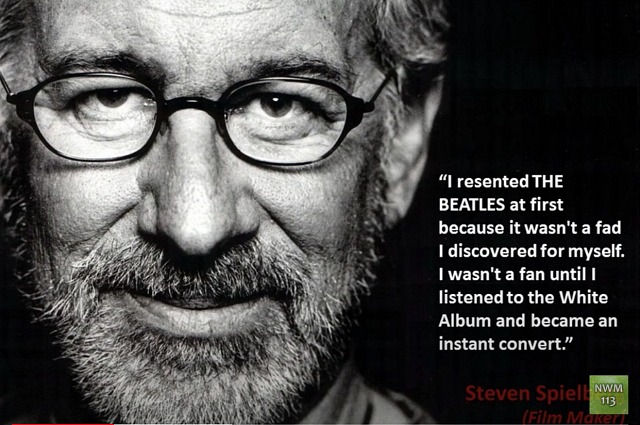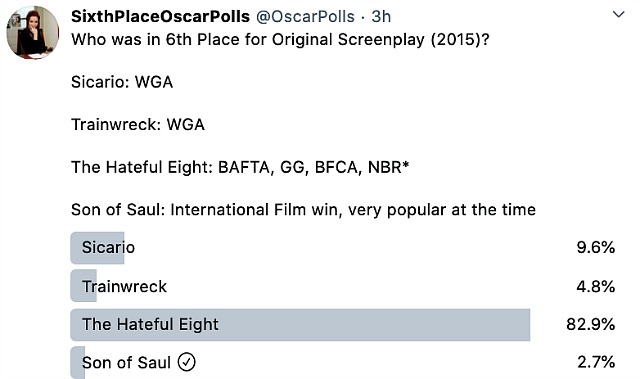Hollywood Elsewhere’s official position is that Bicycle Thieves, the original Italian title of Vittorio De Sica’s The Bicycle Thief, which is what everyone called it during the entire second half of the 20th Century, should be cancelled.
The plural title has been used by Criterion acolytes for the last decade or so, but HE has always been against this. The title should be phrased in the singular.
I’m mentioning this because earlier today Indiewire‘s Eric Kohn posted a riff about De Sica’s neorealist classic, and in the second sentence stated that it was mislabeled “for years” as The Bicycle Thief. It was actually “mislabeled” that way for decades, and for good reason. Wanna hear the reason? The Bicycle Thief is a much better title.
From “One Of The Most Irksome Titles Changes Of All Time,” posted on 12.31.15:

“The Bicycle Thief is the title of a poem. Bicycle Thieves is a phrase in a police report (i.e., rapporto della polizia).
“DeSica’s post-war drama is about a poor, struggling husband-father (Lamberto Maggiorani) who becomes desperate when a bicycle he needs for a new job has been stolen. His young son is played by Enzo Staiola. Most of the film is about Maggiorani’s unsuccessful attempt to find the stolen vehicle. It climaxes when, at wit’s end and desperate to hold onto his job, he steals someone else’s bike, and is quickly seized by authorities.
“Thus (and be warned, what follows is one of the most groan-worthy observations ever made by a reputable film critic in world history) the alternative U.S. title is ‘misleading’, in the view of The Observer‘s Philip French, because ‘the desperate hero eventually becomes himself a bicycle thief.’
“Good God, man! The singular title is far more intriguing because it allows the viewer to decide if it refers to thief #1 or thief #2. (The presumption during the first 90% is that the title refers to the former; the heartbreaking finale suggests the latter.). By not being precise it suggests that the term ‘bicycle thief’ may refer to anyone who is poor and hungry and driven to criminality out of desperation — it universalizes the singular. And the use of the plural ‘thieves,’ of course, tells the first-time viewer to expect a second felony to punctuate the story sooner or later, thereby diluting the effect when it happens.




